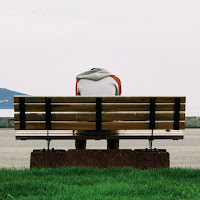I occasionally experience what I call an “emotional hangover”.
 Before I go on, I want to stress that an emotional hangover is something that is temporary and, for want of better word, “mild”. If you are experiencing any of the emotions I’m about to talk about to the point that they impact your ability to function normally or if they impact your quality of life, I urge you to seek professional help. Talk to your pastor, a counselor, your doctor . . . a qualified professional you trust implicitly.
Before I go on, I want to stress that an emotional hangover is something that is temporary and, for want of better word, “mild”. If you are experiencing any of the emotions I’m about to talk about to the point that they impact your ability to function normally or if they impact your quality of life, I urge you to seek professional help. Talk to your pastor, a counselor, your doctor . . . a qualified professional you trust implicitly.
A person with an emotional hangover feels any number of negative emotions such as sadness, lethargy, hopelessness, confusion, anxiousness, grief, fearfulness, melancholy, weariness, and so on.
Sometimes I have an emotional hangover in response to my own actions. A couple of years ago, I overspent on vacation then faced the consequences when the credit card statement arrived the following month.
Sometimes events outside my control have been the cause. My children have left after a visit from out of state, and my house is empty again.
If social media posts are any indication, many people are experiencing emotional hangovers right now. News of friends and loved ones battling COVID-19, extended periods of self-quarantine, and the unceasing divisiveness over masks and government officials’ responses (or lack of) to the pandemic has affected many of us. The months of political campaigns, social media vitriol, election-week drama, and the outcome of one or more of the specific races has also impacted those of us who live in the United States.
Fortunately, there is a cure for an emotional hangover, and it involves only two steps.
First, consider what has been effective in overcoming one in the past.
Second, reflect on what trigger is triggering the one you’re experiencing. Then dig a little deeper. If, for example, your children leaving after an extended visit is a trigger, ask yourself what it is about their leaving that’s causing your emotional slump. Is it the emptiness of your home? Are you worried about the increased grocery bills and expenses from numerous, out-of-the-ordinary restaurant meals?
Once you’ve determined what has worked before, you can of course, try that again. If you know what the trigger is, you can address that to the best of your ability. No doubt making positive steps, no matter how small, will help you feel more hopeful and in control.
Possible cures for an emotional hangover:
pray
take a break from social media
physical exercise — something as simple as a walk around the block
volunteer — do something for someone else
participate/practice a favorite hobby or pastime — go fishing, knit socks
get adequate sleep (but not too much)
talk with a trusted friend
meditate
make changes to your normal routine
watch a television show or movie that never fails to make you laugh
get a manicure or a massage
bake cookies and then enjoy them with a glass of ice-cold milk
do something creative
dance around your living room
put on music and sing along
take a drive to a place that lifts your spirits
go to the park and swing or go down the slide
treat yourself without breaking the bank — get an ice-cream cone, buy a
favorite magazine and relax with a cup of tea at your favorite
beverage at a local coffee/tea house
It’s important, too, that you stop doing things that might worsen an emotional hangover or cause it to last longer. Too much sleep, for example, can be counterproductive, as can consuming alcohol.
Remember, there’s no single cure, and what has worked before might not work every time. Try different strategies, and be patient and kind to yourself as you find the cure you need.
What strategies help you cure an emotional hangover? I hope you’ll share via a comment below.

